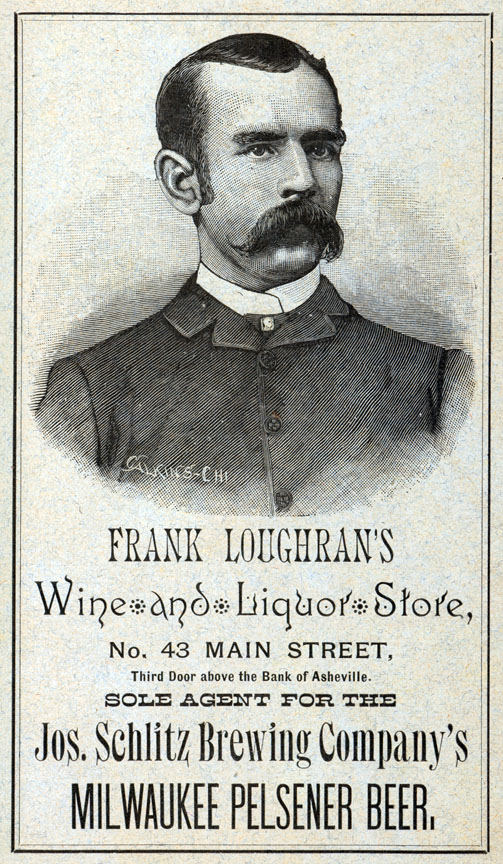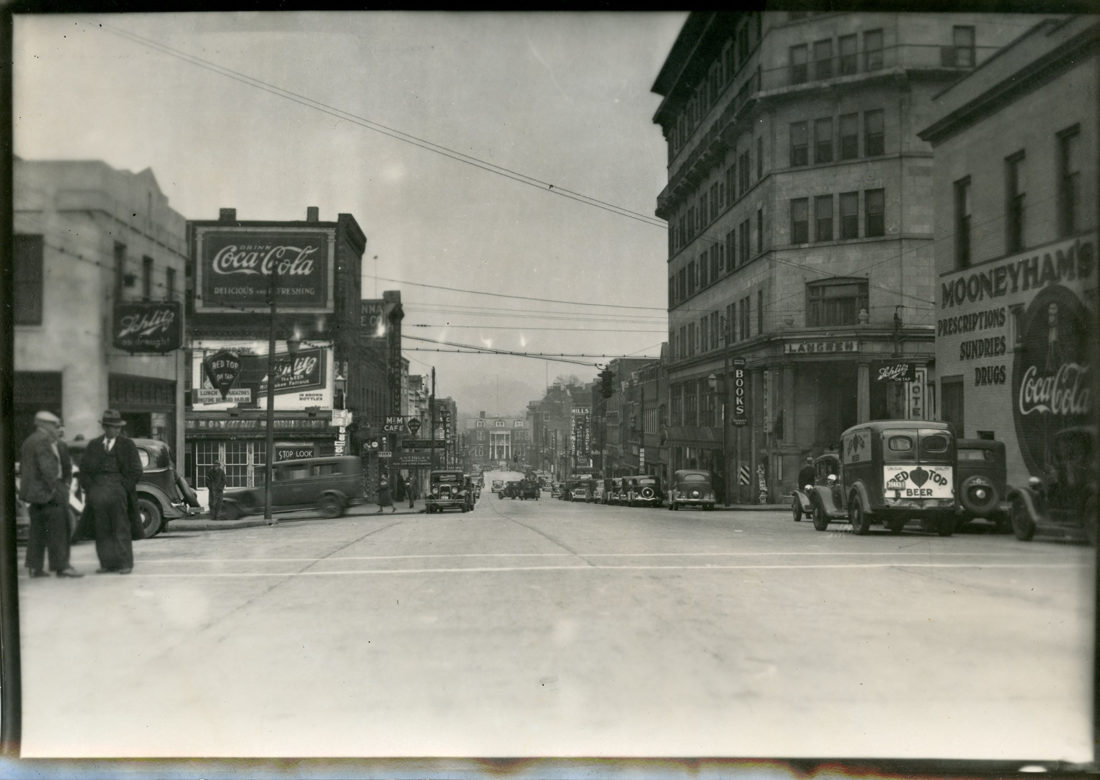In the early spring of 1933, excitement was brewing in Asheville. After a 25-year drought, beer would again be legally sold in the city starting in May (see “Asheville Archives: Prohibitionists seek to reform Asheville, 1907,” May 29, 2018, Xpress).
The process toward legalization began when President Franklin D. Roosevelt signed the Beer and Wine Revenue Act into law on March 22, 1933. Shortly thereafter, the N.C. General assembly followed suit, approving the sale of both beverages.
By April, the city’s anticipation was growing. “Twenty-one more days, and beer will again be legal in Asheville and throughout the state of North Carolina,” the Asheville Citizen-Times announced in its Sunday, April 9, edition.
According to the article, before Asheville voted to go dry in October 1907, Schlitz and Budweiser were the two most popular beers in town. The majority of the city’s residents, however, preferred drinking whiskey and wine. Still, local brewery warehouses were situated in Asheville, with their horse-drawn carriages delivering cases and kegs to the area’s saloons.
During this period, the Bonanza Bar was among the city’s most popular drinking spots and “one of the finest bars in the southeast,” the paper reported. Located where Manicomio Pizza & Food stands today, Bonanza offered “fine wines, rare old liquers and a variety of whiskies, together with two or three brands of beers,” the Sunday paper wrote.
Meanwhile, the 1933 article continued, hotels at the turn of the 20th century provided “special rooms where women might drink [to] avoid the eyes of the curious.” In the original Battery Park Hotel, for example, the “Red Room” was a space designed specifically for this purpose. However, most women, the paper asserted, “drank their beer at home.”

Despite Asheville being a wine and whiskey town in the early 1900s, some local organizations made it a point to celebrate beer. On the first Friday of every month, the Asheville Club, an all-male social organization located in the Miles Building, hosted “Beer Day” (see “Asheville Archives: The Asheville Club moves to Haywood Street, 1901,” Sept. 19, 2017, Xpress). The monthly happening drew in more than 300 members, with Wurzberger being the group’s brew of choice. Generally, two to three kegs were consumed during each event.
Further, the 1933 article notes, some residents at the turn of the century drank beer for their health: “In many instances, physicians prescribed it for men and women who were suffering from lack of appetites and food assimilations. Many persons drank beer for these reasons, although they did not like the brew at all.”
Of course, absence makes the heart grow fonder. On May 1, 1933, when beer finally returned to the mountains of Western North Carolina, the city stirred with excitement. “At the stroke of midnight crowds, laughing and shouting, surged happily into cafes and stores eager to play a hand in the state’s new deal,” The Asheville Citizen reported that day. Some of the merrymakers cried, “Hurrah for Franklin Roosevelt,” the paper wrote; others sang “Happy Days Are Here Again.”
Complimentary food was served at several establishments that day. Beer sold for 25 cents a bottle at most locations; customers who took their beer to-go were charged an additional 5 cents. Meanwhile, at the Do Drop Inn on Pack Square, an orchestra entertained the late evening guests.
“An odd mixture of humanity rubbed elbows at the various ‘bars’ yesterday,” The Asheville Citizen declared in the following day’s paper. “What would have been called ‘flappers’ several years ago lined up alongside red-nosed pioneers in the art of beer drinking.”
Not long after the first few rounds were served, the article noted, “would-be connoisseurs had begun to develop a taste for one or two of the better-known brands and began calling for the beer by name instead of walking up and calling ‘beer.’”
Generally, the article continued, “those partaking of the beverage described it as ‘pretty good.’”
However, the article reported: “Some of the girls made wry faces, but most of them were determined to find out what it was all about, draining their beer mugs before finally passing judgment. Many of them were of the opinion that a taste for it could be developed.”
Editor’s note: Peculiarities of spelling and punctuation are preserved from the original documents.



Before you comment
The comments section is here to provide a platform for civil dialogue on the issues we face together as a local community. Xpress is committed to offering this platform for all voices, but when the tone of the discussion gets nasty or strays off topic, we believe many people choose not to participate. Xpress editors are determined to moderate comments to ensure a constructive interchange is maintained. All comments judged not to be in keeping with the spirit of civil discourse will be removed and repeat violators will be banned. See here for our terms of service. Thank you for being part of this effort to promote respectful discussion.